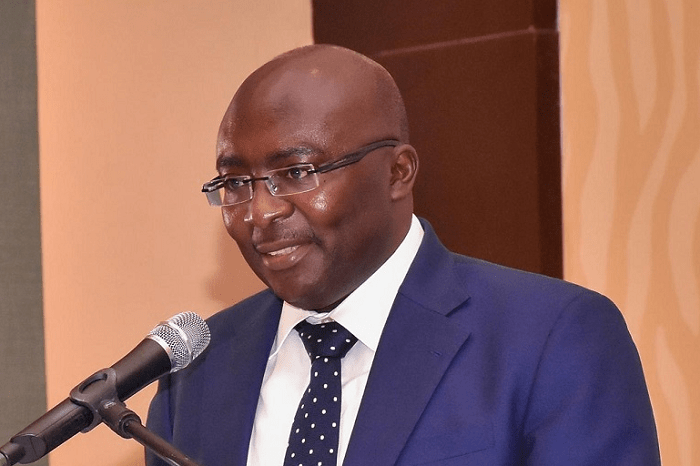
Digital transformation catalyst for investments — Bawumia
The Vice-President, Dr Mahamudu Bawumia, has stated that the digital transformation of Ghana has enormous opportunities to promote investment in the country.
Describing the digitalisation process as a critical soft infrastructure which was long overdue for the country, he said one of the major policies being implemented to support the growth and modernisation process was the issuance of national identity cards which would make it possible to identify each person with a unique number.
He mentioned some of the digital transformation processes as the revolution in the processes of acquiring Ghanaian passports, the introduction of the national digitalisation addressing system, the digitalisation of land administration, the electronic payment system and moving the economy to a cashless system.
Others are the Driver and Vehicle Licensing Authority (DVLA) going paperless and the paperless port.
Dr Bawumia made this known when he addressed British investors and officials of ministries and other state organisations at a private breakfast meeting on the second day of the UK-Ghana Investment Summit 2018 in Accra on Tuesday.
The two-day summit, which was a follow-up to a similar summit held in London in April this year, was attended by more than 50 British companies to discuss trade and investment opportunities with ministers and other government officials.
National ID
To establish how far Ghana had gone with its digital transformation and modernisation drive, Dr Bawumia said “after 60 years of independence, just obtaining a driver’s licence, obtaining a passport, establishing your identity to even obtaining a passport was a problem. A lot of people are excluded from the financial services sector; there are challenges in registering a business; buying land and registering a land title are a challenge”.
On assuming office about 20 months ago, he said, the government decided to modernise and formalise the economy by initiating policies through the adoption of technology to ensure efficiency.
“We live in a digital world and so if you are going to be competitive in today’s world, you have to be plugged into the Information Technology highway, otherwise you will be excluded,” he said.
With the national ID card, he said he was optimistic that companies would not have the challenge of dealing with ghost workers.
“It is biometrically based. It has streamlined a lot of information, like addresses, criminal history, and date of birth. It will prevent identity theft and provide data for planning to deal with corruption and enhance service delivery to the poor,” he said.
Dr Bawumia announced that the mass issuance of the Ghana cards would commence next month.
The National Identification Authority (NIA) is currently undertaking the institutional issuance of the national identity cards.
As part of efforts to move to a cash elite economy, he said, by next year all payments for government services would be done electronically.
“No cash. We have infrastructure in place. If you have mobile payment, e-zwitch account or bank account you can use it. It will help us a lot,” he said.
Next month, he said, a modernised system for applying for passports online would be introduced.
With the national identification card in place, he said, passport application processes would be easy, as the details of every individual would have been captured already.
“When the National ID card issuance is completed by next year, the use of documents for passport application process will be redundant. The passport can be delivered to the applicant at home, since your digital address will be known,” he said.
UK’s commitment
The British High Commissioner in Accra, Mr Iain Walker, said the United Kingdom was committed to working with Ghana as equal partners.
He said private and public sector cooperation was key to the industrialisation drive of any economy.
The Chief Executive Officer (CEO) of the Ghana Investment Promotion Centre, Mr Yofi Grant, outlining some of the priority areas where Ghana needed investment, in line with the Ghana beyond aid agenda, mentioned sectors such as energy, infrastructure, ICT, agriculture, manufacturing, railways, oil and gas, real estate, among others.
